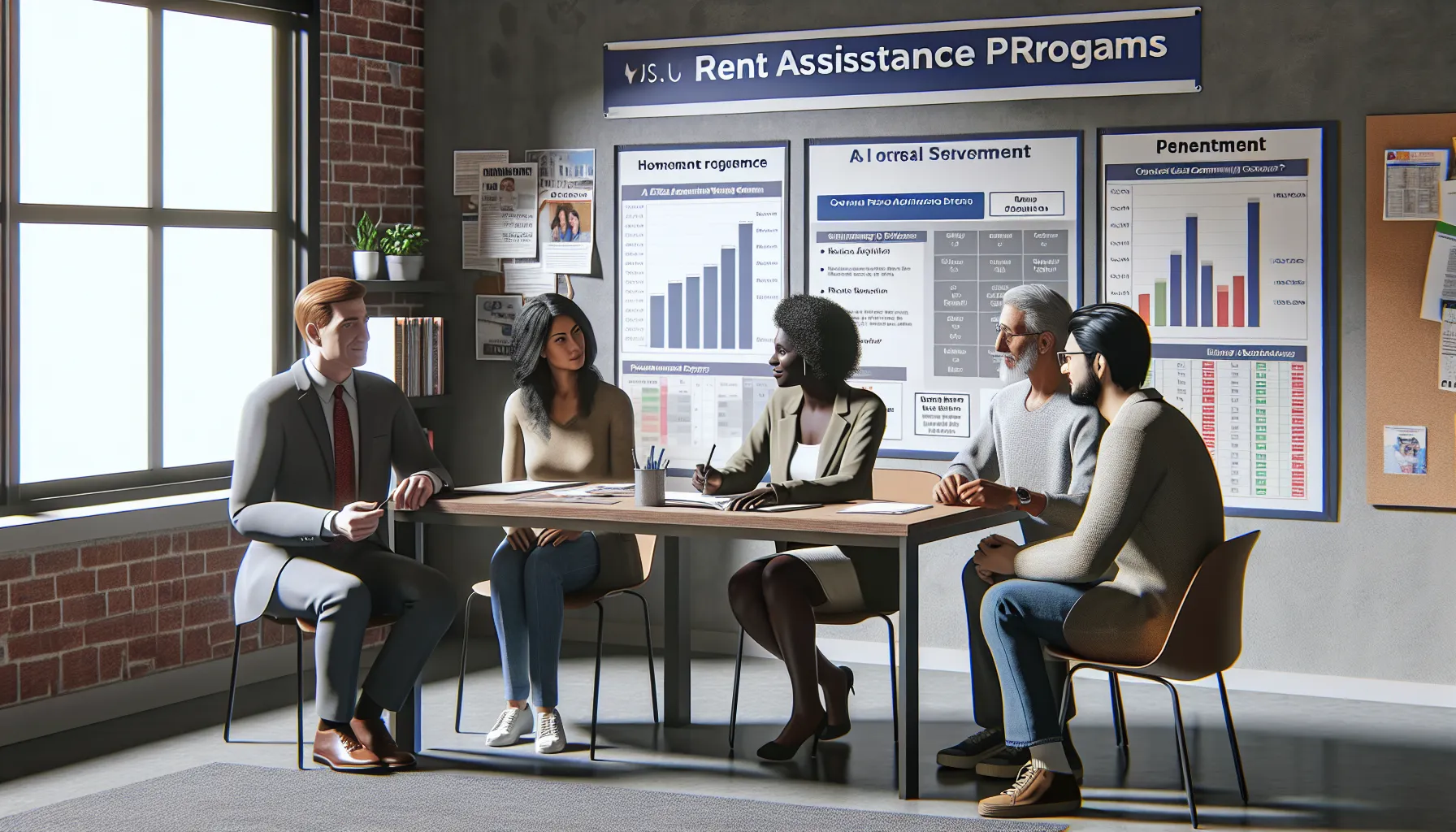10 Smart Ways to Save Money on Rent Without Sacrificing Comfort
Key Takeaways
- Negotiate With Your Landlord: Approach your landlord respectfully to request a rent reduction, sign a longer lease, or offer additional value as a reliable tenant.
- Consider Affordable Housing Options: Save money by exploring shared housing, downsizing to smaller or older units, or searching in less expensive neighborhoods.
- Utilize Rent Assistance Programs: Look into government programs, local initiatives, and nonprofit organizations that offer financial support and resources to eligible renters.
- Cut Down On Utilities And Extra Costs: Reduce energy consumption, eliminate unnecessary amenities, and split expenses like rent and utilities with roommates to lower overall costs.
- Practice Timing And Flexibility: Moving during the rental off-season or being flexible with lease terms can unlock better deals and rental discounts.
Rent can be one of the biggest expenses in anyone’s budget, and it often feels like there’s no way around it. I’ve been there—staring at my monthly rent bill, wondering how to make it a little less painful. The good news? There are actually some creative and practical ways to save money without sacrificing too much comfort.
Whether it’s negotiating with your landlord, finding a roommate, or rethinking your living space altogether, there are plenty of strategies to keep more of your hard-earned cash in your pocket. Saving on rent doesn’t have to mean drastic changes—it’s all about being smart and resourceful. Let’s explore some ideas that can make a real difference.
Negotiate With Your Landlord
Negotiating with your landlord can lead to lower rent or better terms. Approaching the conversation thoughtfully increases the chances of a positive outcome.
Request A Rent Reduction
Asking for a rent reduction works best if you provide valid reasons. For example, highlight comparable units in your area with lower rent or mention any property issues, like outdated appliances or maintenance delays. Focus on facts and keep your tone respectful.
Offer To Sign A Longer Lease
Proposing a longer lease often appeals to landlords who want stability. If you’re comfortable committing to 12-24 months, use this as leverage to request lower monthly rent. Landlords value reduced turnover and the associated costs.
Provide Value As A Tenant
Offering additional value can make you more desirable as a tenant. For example, volunteer to handle light maintenance, care for landscaping, or pay rent early. Demonstrating reliability and a cooperative attitude strengthens your negotiation position.
Consider Affordable Housing Options

Reducing rental costs often starts with exploring lower-cost living arrangements. Affordable options allow me to save money without sacrificing essential needs.
Explore Shared Housing Arrangements
Living with roommates can significantly reduce housing expenses. By splitting rent and utilities, I lower my monthly costs. For example, sharing a two-bedroom apartment with one other person cuts the total rent in half. Platforms like Roomster or SpareRoom help connect me with potential housemates. Additionally, co-living communities often offer shared spaces at competitive rates with added amenities.
Look For Smaller Or Older Units
Choosing smaller or older units usually brings reduced monthly rent. For instance, a studio apartment often costs less than a one-bedroom. Older buildings, while potentially lacking modern updates, tend to have lower prices compared to new construction. I check listings for units slightly below my space or feature preferences to find hidden savings.
Search In Less Expensive Neighborhoods
Rent varies greatly by location, even within the same city. By looking in less trendy or developing neighborhoods, I find more affordable rates. Areas farther from city centers typically offer the same square footage at a fraction of the cost. Public transit options or bike infrastructure keep these areas accessible without adding significant commute costs.
Utilize Rent Assistance Programs

Exploring rent assistance programs can help ease the burden of high housing costs. These options are designed to support eligible renters facing financial difficulties.
Research Government Assistance Programs
Government programs often provide targeted financial relief for renters. I check for federal programs like Section 8, which offers housing vouchers to lower-income individuals or families for use with participating landlords. State and local initiatives also exist, such as rent relief funds or eviction prevention assistance, which vary depending on the location. I stay updated on eligibility criteria and application deadlines to ensure access to these benefits.
Seek Help From Nonprofit Organizations
Nonprofit organizations frequently help renters facing financial hardship. I look for local groups or national ones, such as Catholic Charities or The Salvation Army, which offer rental assistance, emergency funds, or counseling. Some nonprofits also provide mediation services to negotiate with landlords and resolve disputes. I explore available resources online or through community centers to find specific support in my area.
Cut Down On Utilities And Extra Costs

Reducing utility expenses and cutting extra charges can lower overall housing costs. Small changes in daily habits and expenses make a significant difference.
Reduce Energy Consumption
Lowering energy use decreases electricity and gas bills. I use energy-efficient LED bulbs, which last longer and consume less power than traditional ones. Adjusting my thermostat helps too; I keep the temperature slightly lower in winter or higher in summer. Unplugging appliances when not in use prevents phantom energy consumption. Washing laundry in cold water and air-drying clothes also cuts costs.
Eliminate Unnecessary Amenities
Paying for amenities I rarely use wastes money. I canceled unnecessary subscriptions like cable if streaming services meet my needs. Opting for a property without amenities like a gym or pool saves on rent since these extras often increase costs. Choosing locations closer to work or public transportation reduces the expense of parking fees or commuting services.
Split Costs With Roommates
Sharing housing costs lightens the financial load. I split rent and utilities equally with my roommates, making overall expenses manageable. For example, we divide internet and energy bills monthly to avoid excessive individual payments. I found my roommates through trusted platforms like Roommates.com, ensuring a good match. By splitting expenses, I free up funds for other priorities.
Timing And Flexibility
Planning moves and adjusting preferences can make a significant difference in rental costs. Timing and adaptability often help secure more favorable rates or terms.
Move During Off-Season
Relocating during the off-season typically results in lower rents. Rental demand drops in winter months, like December through February, as fewer people move, giving you an advantage in negotiations. Landlords are more likely to lower rent or offer incentives like a free month or reduced security deposit to fill units quickly.
Be Flexible With Lease Terms
Agreeing to unconventional lease terms often reduces rental costs. If you’re open to signing a longer lease, landlords might offer reduced monthly rates or additional perks. Similarly, opting for month-to-month leases in less popular rental periods can uncover temporary discounts. Being flexible with move-in dates also opens opportunities for better deals on properties that landlords are eager to lease.
Conclusion
Saving money on rent might feel overwhelming at first, but with a little creativity and effort, it’s definitely doable. Small changes, like exploring new living arrangements or making the most of available resources, can have a big impact on your budget. It’s all about being proactive and staying open to opportunities that align with your lifestyle and needs.
Finding ways to cut costs doesn’t mean sacrificing comfort or convenience. Whether it’s negotiating with your landlord, sharing expenses with roommates, or taking advantage of assistance programs, there are plenty of options to explore. Every step you take toward reducing your rent can bring you closer to financial peace of mind.
Frequently Asked Questions
1. How can I negotiate a lower rent with my landlord?
You can negotiate rent by researching local rental prices and presenting your case with comparable lower rates. Highlight property issues or offer something valuable, like signing a longer lease or paying rent early, to make your proposal appealing to the landlord.
2. What are some ways to find affordable housing options?
Affordable housing options include shared housing arrangements, co-living communities, or smaller and older units. Platforms like Roomster or SpareRoom can help you find roommates to split rent and utilities. Additionally, consider searching in less expensive neighborhoods.
3. Are there any rent assistance programs available?
Yes, government programs like Section 8 housing vouchers and local rent relief funds can help eligible renters. Nonprofits like Catholic Charities and The Salvation Army also offer rental assistance and support services.
4. How can I reduce utility costs in my rental?
You can lower utility expenses by using energy-efficient appliances like LED bulbs, adjusting your thermostat, and unplugging unused devices. Eliminating unnecessary amenities, such as gyms or pools, can also help reduce housing costs.
5. Is splitting rent with roommates a good idea?
Yes, sharing rent with roommates significantly reduces housing expenses. It allows you to split utilities, freeing up more of your budget for other priorities.
6. When is the best time to move to save on rent?
The off-season, such as winter months, is ideal for moving. Demand is lower, giving you more negotiation power for better rental rates or lease incentives.
7. Should I consider a longer lease to lower my rent?
Yes, agreeing to a longer lease can appeal to landlords seeking stability. This may lead to reduced rental costs or other favorable terms.
8. How do I save on commuting costs while renting?
Choose properties closer to your workplace or public transportation to cut commuting expenses. Saving on travel costs can make a significant difference in your budget.
9. Are co-living communities cost-effective?
Co-living communities can be cost-effective as they often offer competitive rates and shared amenities. They are a great option if you’re open to communal living.
10. What amenities should I avoid to save on rent?
Avoid amenities like pools, gyms, or in-unit washers/dryers if they increase rent significantly. Choose only the features you truly need to save on costs.

